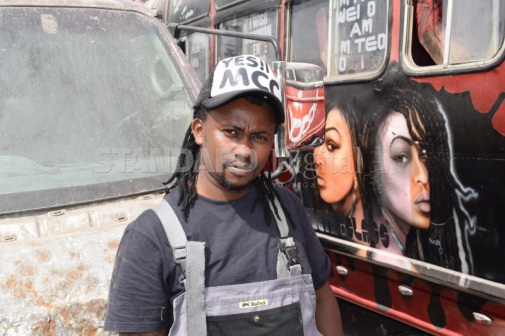
Most of us can recall, in our teenage years, standing by a bus stop waiting for a specific matatu to show up because we liked the artwork on the body, the interior design or the sound system. It is because of this customer appeal that the matatu art industry has grown in leaps and bounds.
The potential in the industry attracted Myke Rabar, HomeBoyz founder and a Lion in the KCB Lion’s Den, to invest in entrepreneur Michael Kinuthia, who pitched for Sh1.5 million in return for 15 per cent of his matatu graffiti company, Nozy Customs.







